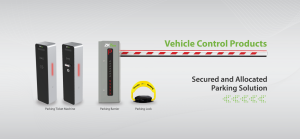
Key Benefits Of Non-Destructive Testing (NDT) In Quality Assurance
When it comes to quality assurance, ensuring product reliability and structural integrity is important for safety and performance. Non destructive testing Dubai plays a key role in assessing materials and structures without causing any damage. By utilizing advanced techniques, NDT allows industries to inspect and evaluate components efficiently, ensuring they meet the required standards. Below, we explore the key benefits of NDT in quality assurance.
Ensures product integrity:
Non-destructive testing is an essential tool in maintaining product integrity. NDT methods, such as ultrasonic, radiographic, and magnetic particle testing, allow for the detection of internal defects like cracks, voids, or inclusions without damaging the material. This capability ensures that only products with the highest structural integrity are used, reducing the likelihood of failure during operation.
Cost-effective inspection:
One of the most significant advantages of NDT is its cost-effectiveness. Since the methods do not require disassembling or destroying parts, companies can save on production costs. Also, identifying defects early in the manufacturing process helps prevent costly repairs or replacements later, improving overall productivity while minimizing downtime.
Increases safety and reliability:
By identifying flaws and imperfections that are not visible to the naked eye, NDT improves the safety and reliability of products, machinery, and structures. This is especially important in key industries like aerospace, oil and gas, and construction, where even minor defects could lead to catastrophic failures. Regular NDT inspections help maintain safety standards, protecting both workers and consumers.
Inclusive testing methods:
NDT offers a wide variety of testing methods suitable for different materials and applications. Techniques such as radiographic testing for welded joints, ultrasonic testing for metals, and dye penetrant testing for surface defects provide flexibility. This versatility ensures that the most appropriate method can be chosen based on the material and the specific defect to be identified.
Supports sustainable practices:
Since NDT allows for the reuse of tested components, it promotes sustainability by reducing waste. Unlike destructive methods that require discarding the inspected parts, NDT ensures that components are preserved and only rejected if they do not meet safety or quality standards. This minimizes resource consumption and supports environmentally friendly practices.
Non-Destructive Testing plays a key role in quality assurance by providing safe, efficient, and cost-effective methods for inspecting materials and structures. Its ability to ensure product integrity, increase safety, and support sustainable practices make it invaluable across various industries, contributing to the reliability and longevity of products.

